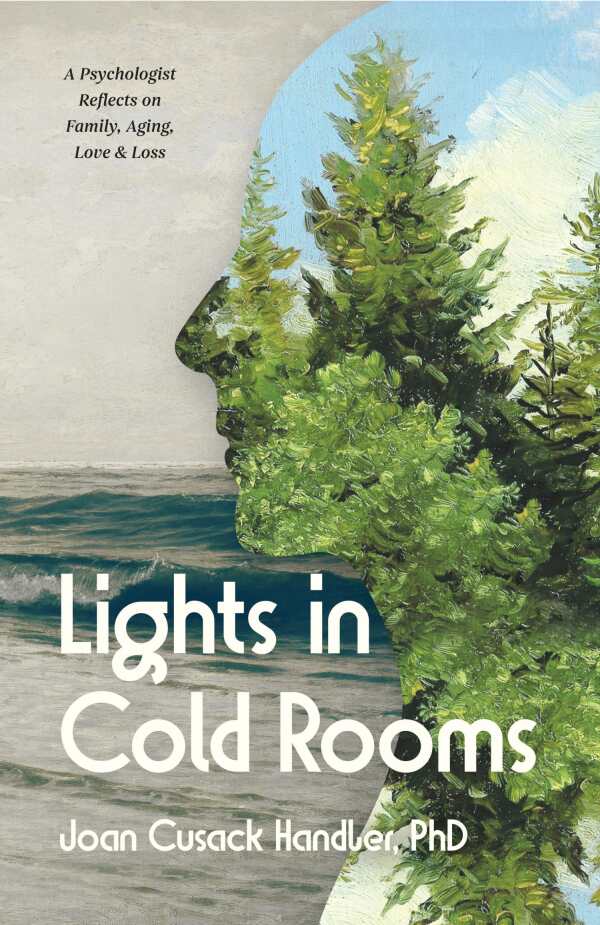Lights in Cold Rooms
A Psychologist Reflects on Family, Aging, Love & Loss
A musing memoir, Lights in Cold Rooms sifts through a lifetime of memories in search of understanding.
Joan Cusack Handler’s introspective memoir Lights in Cold Rooms is about family relationships and the challenges of aging.
Drawing from journal entries written during COVID-19 lockdowns, when Handler was unable to find a therapist to take her on, this work of self-discovery sometimes holds external audiences at a distance. It is made up of free-flowing self-analyses, ruminating on her childhood experiences of bullying, what it was like for Handler to start her family, and the process of coping with grief over her lost parents and sister.
The book’s progression is nonlinear, with some passages spanning decades to follow the throughline of a specific issue, as with its coverage of Handler’s spinal pain. Other chapters zero in on specific moments, like a day spent with her granddaughters or media coverage of COVID-19: “Hope diminishes. The numbers just multiply exponentially along with the sirens shrieking, the towers of white body bags that wait in makeshift containers to be buried.”
Each chapter starts with a date range of the time period covered, varying from five years to fifty. Some simply say “Ongoing.” These touchpoints are antithetical to the structure of the book, though, which follows emotional threads rather than a strict chronology.
One of the major topics is Handler’s struggle with aging. She writes that she does not appreciate the limits on her body or the feeling that society no longer expects much from her. In her late seventies in the wake of the pandemic, she still has trouble finding a therapist, leading her to wonder, “At what age do we become disposable?” But the degree of Handler’s self-acceptance around aging fluctuates throughout the book, making even this frequent subject feel inconsistently handled.
Stream-of-consciousness in style as one story triggers memories of another, the prose is often too short on context. People in Handler’s life are mentioned in asides before they are fully introduced, and there are distracting instances of repetition as well. Elements of self-help dilute the book’s focus further, as when Handler recommends writing as a useful aid to talk therapy and suggests that her writing can be viewed as a guide for others. Some of the book’s circling back leads to breakthroughs following the introduction of new information, though, as when Handler is at long last able to understand her mother’s tense relationship with her older sister.
A psychologist’s memoir, Lights in Cold Rooms reflects on important relationships, the challenges of aging, and means of navigating the contemporary world.
Reviewed by
Julia Dillman
Disclosure: This article is not an endorsement, but a review. The publisher of this book provided free copies of the book and paid a small fee to have their book reviewed by a professional reviewer. Foreword Reviews and Clarion Reviews make no guarantee that the publisher will receive a positive review. Foreword Magazine, Inc. is disclosing this in accordance with the Federal Trade Commission’s 16 CFR, Part 255.

